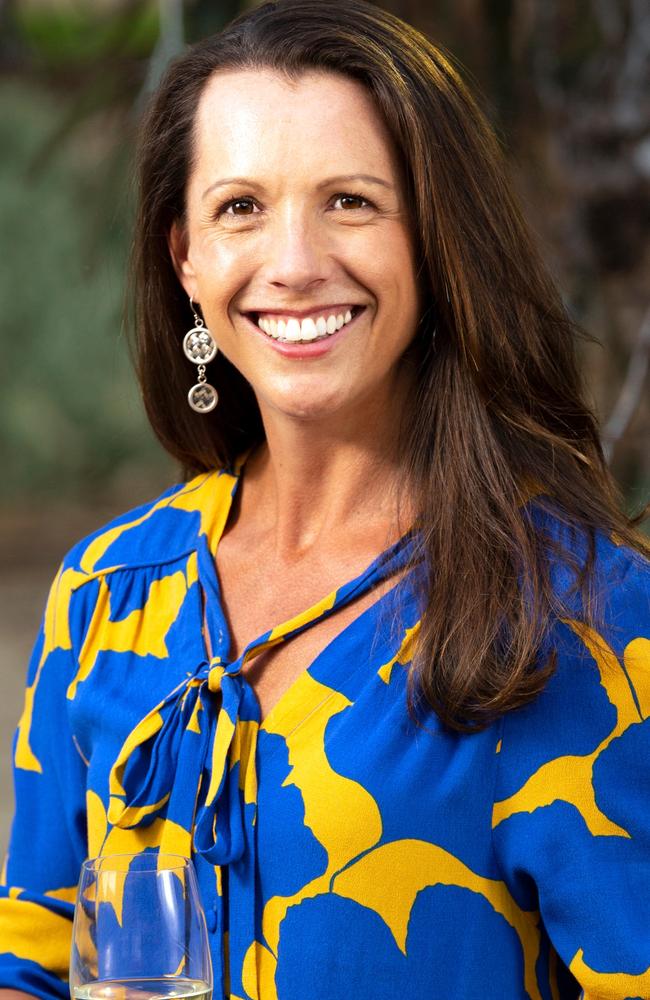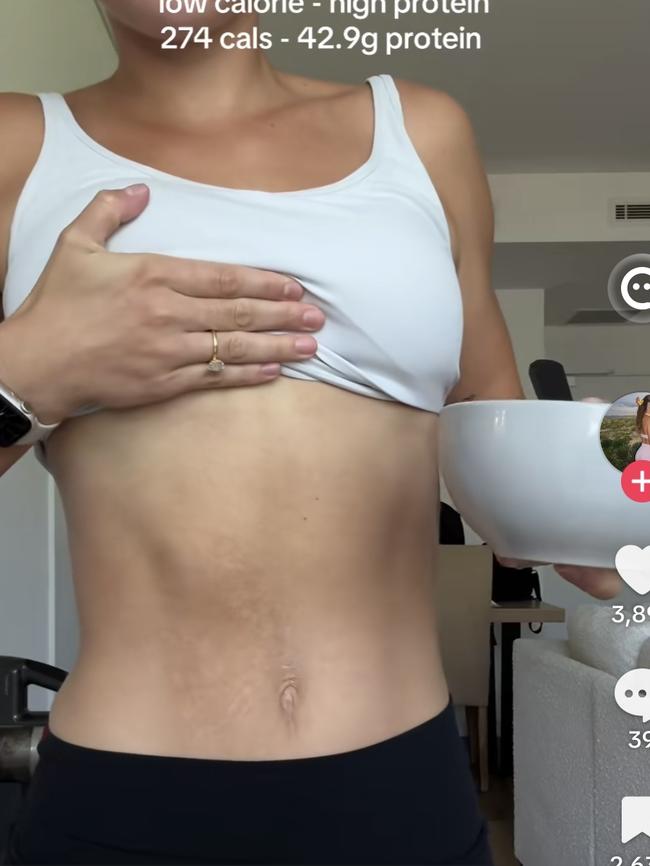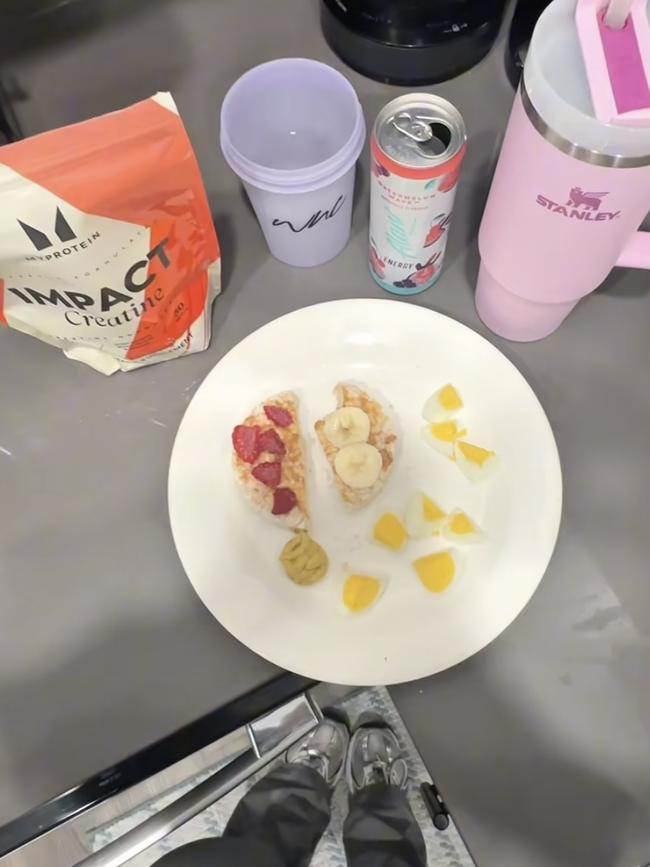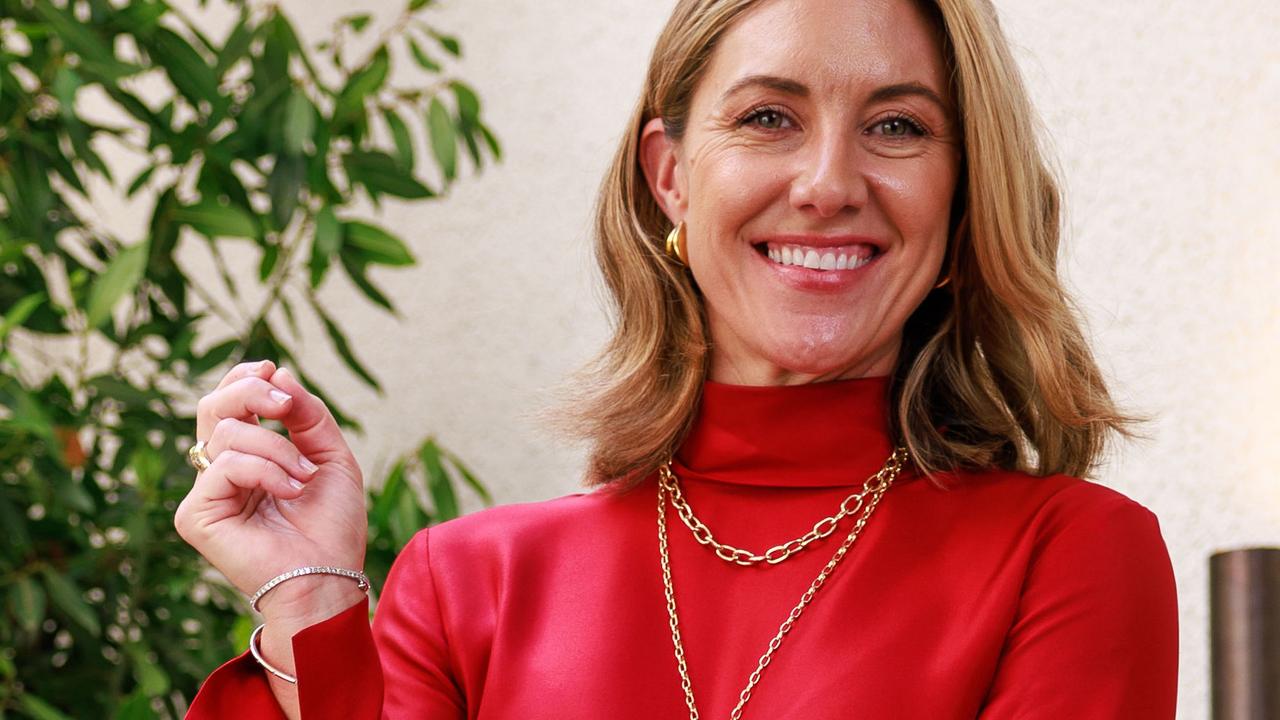Concern over this diet trend flooding social media feeds
Ava Hollo says she feels pressured when social media influencers with no credentials share this part of their day online. Experts are also concerned by the trend.

Diet
Don't miss out on the headlines from Diet. Followed categories will be added to My News.
Like many young women, Ava Hollo’s social media feeds are flooded with What I Eat in a Day videos.
“I don’t even follow any fitness or food accounts and I’m still forced to view it,” the 22-year-old said.
“It makes me feel pressured and uncomfortable.”
The mini vlogs all follow a similar format, beginning with a body shot of an often thin video creator, followed by a supercut of high protein, low calorie meals – think overnight oats, smoothies, colourful bowls and 'healthified' takeaway staples – conveniently marked with its calorie intake generated through apps like My Fitness Pal.
Experts fear the hugely popular trend is normalising disordered eating habits.

While calorie counting was nothing Melbourne-based dietitian Zoe Nicholson hadn’t encountered before over her 20-year career, she said the trend was increasing the number of people needing her help.
Calorie-marked WIEADs “messed with people’s psychology around food” she said, and oversimplified weight loss – a complex process based on highly variable factors including metabolism, gut microbiome and genetics.
“Calorie counting is based on the assumption everyone processes calories in the same way,” she said.

“It is neither accurate nor effective as a way to manage eating for weight loss, and the overwhelming majority regain the weight.”
For Brisbane teenager Isi Semmler, the videos are a “mood kill”.
While the 18-year-old was no stranger to Instagram dieting content, she said its motive was now being intentionally obfuscated.
“Calorie counting was a lot less accepted when I was growing up whereas now it’s branded as a way to better yourselves,” she said.
“(Content creators) need to expose the motive behind why they’re eating this way, which is almost always weight loss.”


Experts believe the promotion of calorie counting in WIEAD videos underplays its risks.
According to a US study by the National Library of Medicine shared by the Butterfly Foundation, nearly three quarters of the participants said calorie counting apps contributed to their eating disorder.
Butterfly clinical and support services head Natalie Spicer said the trend contributed to rigid thinking around food and normalised dieting – the number one risk factor in the development of an eating disorder.
“We know that if people apply strict rules or restrictive calorie limits to their dietary intake, it’s likely that they will be unable to maintain these ‘rules’ and they may binge or consume their ‘off limit’ foods in response,” Ms Spicer said.
“This can cause guilt, shame and a sense of failure, contributing to low self-esteem and body dissatisfaction, and creating a vicious cycle.”
The foundation was also concerned that influencers – many of whom share content under the unregulated titles “coaches” or “nutritionists” – often didn’t have formal qualifications to provide nutrition advice.
But proponents of the WIEAD trend believe they are providing more accessible weight loss and nutrition guidance.
While concern was “completely valid”, one Perth-based content creator - who now sells her own coaching program - said calorie tracking encouraged “progress over perfection” on her weight loss journey.
“I’m not following strict rules, I’m just being more mindful of what I eat and how it fits in my day,” she said.
For confidential and free support for eating disorders call the Butterfly National Helpline on 1800 ED HOPE or visit www.butterfly.org.au to chat online or email.
More Coverage
Originally published as Concern over this diet trend flooding social media feeds




